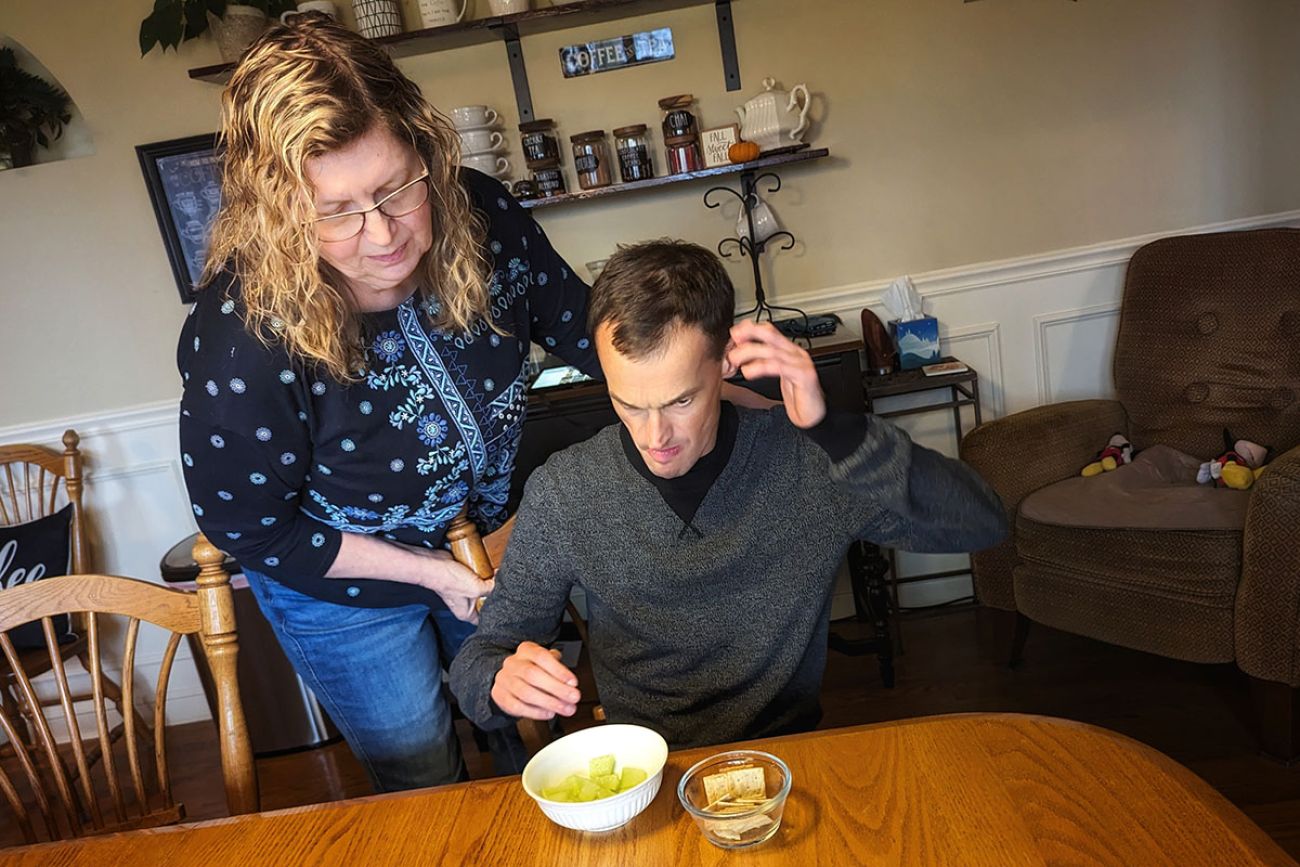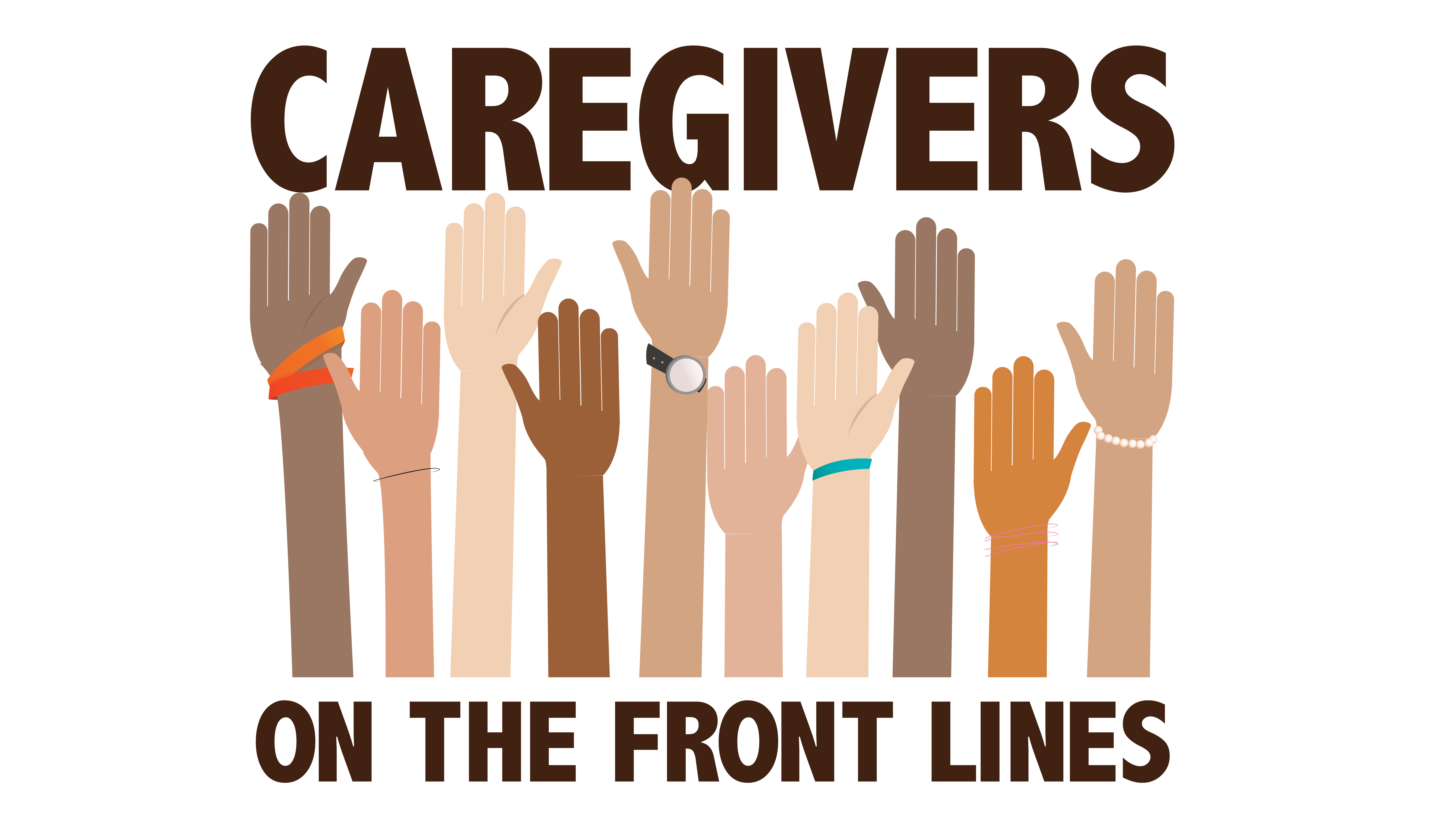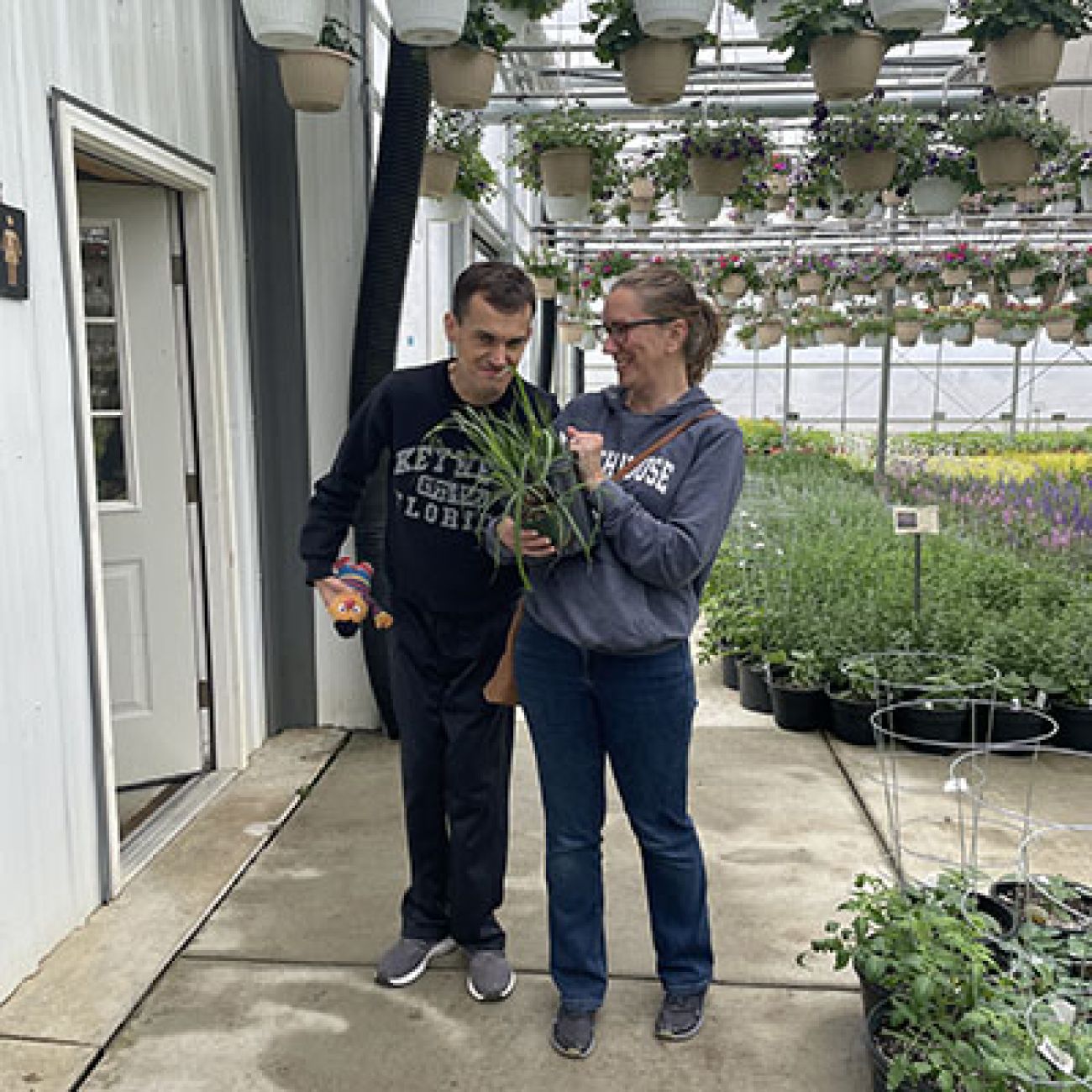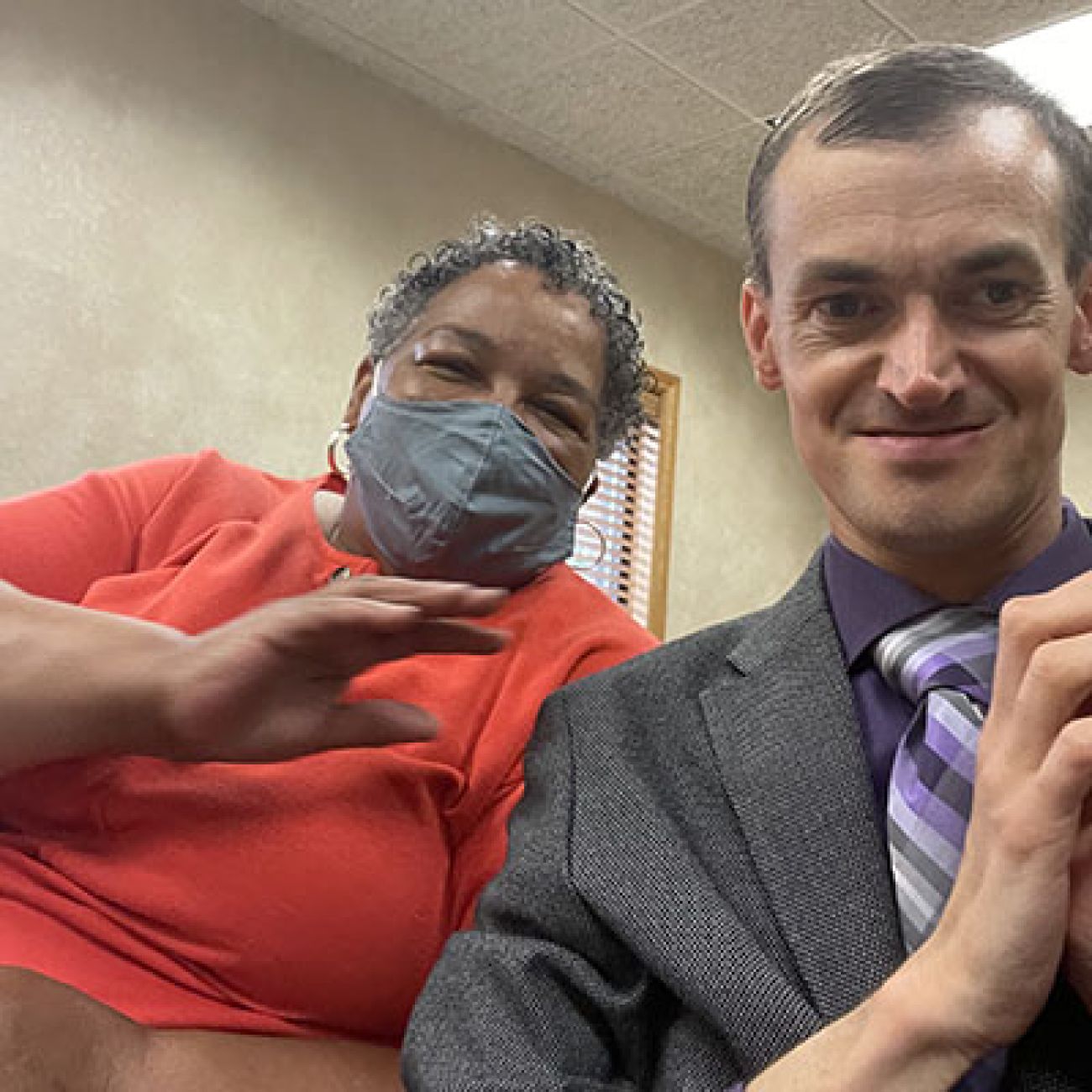Lawsuit could mean more pay for some Michigan caregivers, relief for families

- Michigan families have long complained that it’s difficult to find caregivers for loved ones, in part, because of low wages
- Attorneys for six adults with severe disabilities accused the state of further cutting pay in 2015
- A federal judge will consider a settlement in the case that would mean more pay for workers who care for people with intellectual and developmental disabilities in their homes
MILAN — Thousands of Michigan families soon might find it a bit easier to hire staff to support loved ones with intellectual and developmental disabilities.
Under the terms of a federal lawsuit settlement, Michiganders in the publicly-funded Community Living Support program would receive an increase in state funding to $31 an hour. The money would be used to pay for both caregivers, as well as expenses and transportation for outings.
In Washtenaw County, where the case began, the reimbursement is now $20.50 is an hour for Community Living Support services, said Nick Gable, a senior attorney with Disability Rights Michigan, which filed the original case in 2016.
But out of the reimbursement would come costs associated with community involvement such as tickets to a museum or football game, or lunch at a local diner.
“It’s important to think of this as more than just fun,” Gable said. “There are skills involved in these interactions.”
A dinner out, he said, offers a person with cognitive disabilities the time to hone communications skills or social etiquette, for example.
Attorneys for Disability Rights Michigan and the Michigan Department of Health and Human Services signed off on the agreement Dec. 1.

Invisible Army: Caregivers on the Front Lines
This story was produced through the New York & Michigan Solutions Journalism Collaborative, a partnership of news organizations and universities dedicated to rigorous and compelling reporting about successful responses to social problems. The group is supported by the Solutions Journalism Network.
The collaborative’s first series, Invisible Army: Caregivers on the Front Lines, focuses on potential solutions to challenges facing caregivers of older adults.
If U.S. District Court Judge Paul D. Borman approves it, the case would free up at least $22 million in additional funds each year for affected caregivers, according to attorneys for Disability Rights Michigan.
It was not immediately clear how many families would be impacted across the state, but Disability Rights Michigan said there are more than 250 families in Washtenaw County alone.
The lawsuit was brought by six adults with severe developmental disabilities including Derek Waskul who lives here, in a household surrounded by farm fields south of Ann Arbor. Earlier this week, Waskul, who has the cognitive abilities of a toddler, his doctors say, had been awake since 2 a.m.
Related:
- A new kind of worker in Michigan nursing homes could address staff shortage
- Michigan effort puts new doctors in front of poor, underserved patients
- In Michigan, naloxone has reversed over 6,600 overdoses since 2020
Coffee cups sat on the dining room table, while 40-year-old Waskul and Bonnie Rogers, a long-time family friend and paid caregiver, flipped through pictures of him on Rogers’ tablet. Derek rocked back and forth, flapping a stuffed Mickey Mouse.

“He loves seeing pictures of himself,” Rogers said. But Waskul was also intermittently stomping his feet — an indication of his agitation caused by three strangers sitting at his dining room table.
Except for short periods of rest, Derek is a man in constant motion — “wired and tired,” is what his family calls it. He communicates without words, and his frustration can manifest in pacing and stomping and hitting himself, for example. Insomnia is common. He has seizures.
“He can never be alone,” said his mother, Cindy Waskul.
She, too, had been in motion this morning, fetching coffee, straightening up papers on the table, glancing frequently at Derek as he and Bonnie flipped through pictures. Now her voice wavered. “I’m 64. I’m tired,” she said.
Derek and five other plaintiffs in the case receive funding through the state under a “self-determination” model of care, meaning they and their families don’t have to depend on care agencies but can hire their own staff for help.
More specifically, Community Living Support services are meant to boost or maintain a person’s independence and promote community participation, among other things.
“Derek deserves to participate in our community as much as anyone else does,” Cindy Waskul said.
But in 2015, the Washtenaw County Community Mental Health agency changed the way it funded Community Living Services, forcing caregivers to begin paying for transportation and community costs — tickets or a meal in a restaurant. Previously, it had a separate fund for those extra expenses.
The effect was that workers’ wages were squeezed by new costs.
With lower pay, Waskul’s main caregiver quit, his mother said. Derek could no longer easily fetch vegetables at the Ann Arbor Farmers Market, walk the parks, attend church, or “people watch” while sipping sparkling water at The Owl, his beloved coffee shop in downtown Milan.
He withdrew and grew depressed, often refusing to eat. The sitting, according to the lawsuit, worsened his scoliosis.
Without Waskul’s caregivers, and others like them, the risk of isolation and institutionalization would increase — a violation of the Americans with Disabilities Act, attorneys for Waskul and others argued.
Lynn Sutfin, a spokesperson for the state health department, said the program serves about 7,900 beneficiaries each year at a cost of about $97 million. She said the settlement requires these changes be implemented only in the service region that includes Washtenaw County.
Boosting funding for individuals throughout the state, she said, will require additional funding.
It still may be a year or more — assuming the federal judge signs off on the 42-page settlement — before caregivers will see that boost in pay, Gable said.

And as much as the settlement is to the family, it can be a gift to the community, too, Cindy Waskul said. Support workers help her son engage with the public, which, in turn, helps others to see beyond disabilities. Farmer’s Market vendors and coffee shop regulars smile when Derek approaches, she said.
Lynda Gardner, a retired landscaper and long-time Waskul family friend, agreed.
“He may not use words to communicate, but he has the same feelings as we all do,” she said, remembering how Derek began coming to her and sitting with her in church after his grandmother died.
“If he chooses you because he’s comfortable with you,” she said. “ Well, that’s a wonderful feeling.”
See what new members are saying about why they donated to Bridge Michigan:
- “In order for this information to be accurate and unbiased it must be underwritten by its readers, not by special interests.” - Larry S.
- “Not many other media sources report on the topics Bridge does.” - Susan B.
- “Your journalism is outstanding and rare these days.” - Mark S.
If you want to ensure the future of nonpartisan, nonprofit Michigan journalism, please become a member today. You, too, will be asked why you donated and maybe we'll feature your quote next time!





